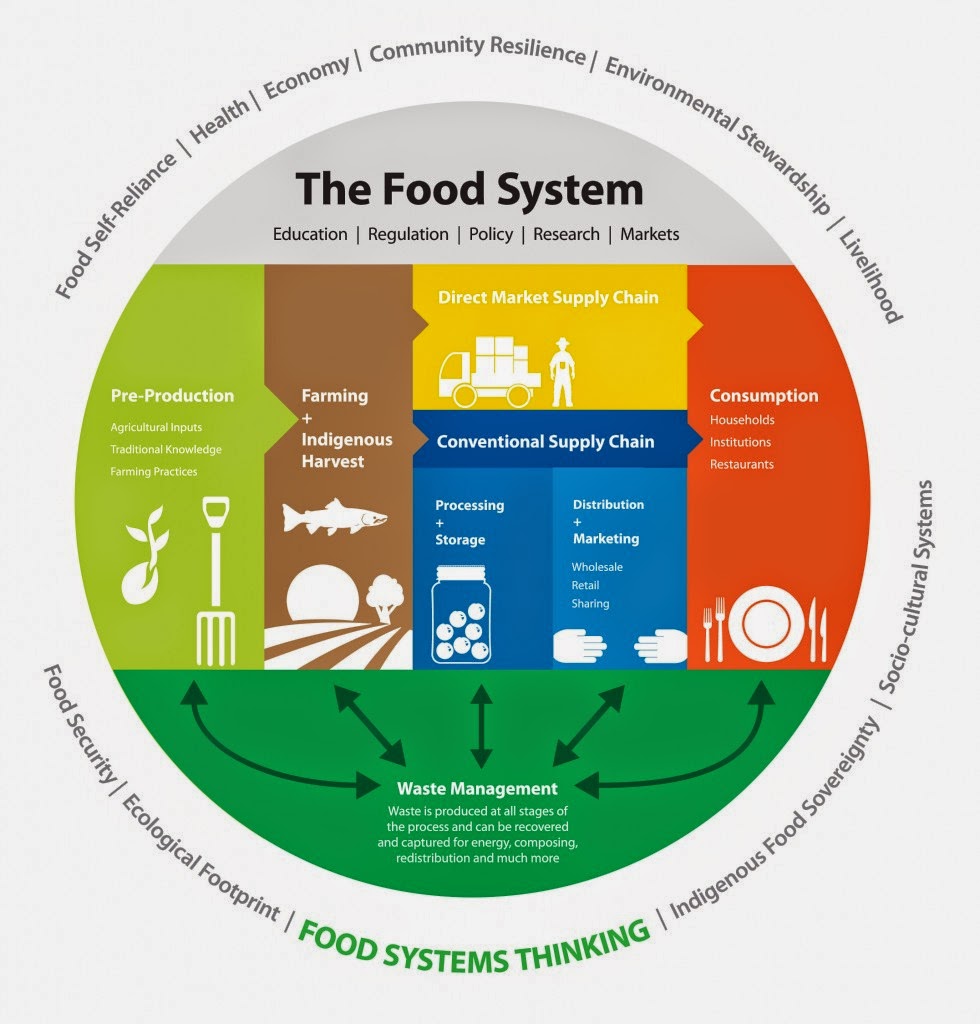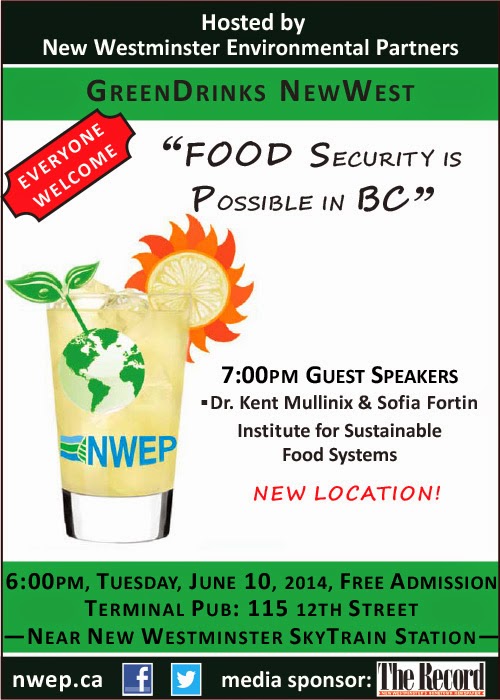I’ve mentioned the Southwest BC Bio-Regional Food System Design Project (SWBCBRFSDP – my acronym, not theirs!) on this blog before, but it was tied in with a bunch of bummer complaining about lack of government support for protecting the ALR, so the good news might have been buried in all that whining. So this is the “good news” follow-up post. Folks in the know are coming to New West on Tuesday to tell us about this really cool project.
Recognizing the need to support more robust local food systems, the researchers at Kwantlen’s Institute for Sustainable Food Systems are applying their significant expertise, and partnering with a diverse community of business, governance, and agricultural experts, to bring about change in how we source our food.
There are a lot of words in SWBCBRFSDP, but I like the idea of showing why every word is relevant:
SWBC: Southwest BC is defined by the project as the area from Hope to Powell River, and from Delta to Lillooet: an extensive area that ties the lower stretch of the Fraser River to the Sunshine Coast, and essentially comprises the mainland Canadian portions of the traditional lands of the Coast Salish People.
BR: A Bio-Region is and area defined by a common topography, climate, plant and animal life, and human cultural influence. In this sense, the watersheds of the Salish Sea from the desert of Lillooet to Howe Sound has a diversity of eco-zones, but are tied together by bio-cultural heritage and geography.
FS: This project is not just about farming and protecting the ALR. Yes, preserving farmland when we can will be an important part of the food security equation, but we also have to consider the other major food inputs, such as the salmon we catch from the river, and the traditional food-gathering that many of us are separated from, but are still an important part of the region’s culture. However, there is much more to food than having profitable local Agri-business farms (how many cranberries do you eat in the average year?). A Food System would support the regional economy by connecting together food sources with processors, warehousing and retail, delivery systems from Farmers’ Markets to restaurants and standard retail. A true system would even connect our disjointed organic waste stream, to bring the nutrients in our food waste back to the farms and better manage in the industrial-scale waste sometimes produced in Agri-business. Ultimately, every step in the food cycle should not just just feed British Columbians, but employ, include, and benefit British Columbians. That is how local economic resiliency is built.
Design Project: This project will start by performing an actual, science-based evaluation of what the food potential of the region is – can this region actually meet its own food needs? And if so, how? They will also be evaluating the critical needs and opportunities for our local food systems to get the food we produce to our local plates. The eventual plan is to create a series of science-based policy papers and best practices reviews that decision-makers in municipal, regional and provincial government can use to help bring a more sustainable local food system into existence.
This project hopes to realize that building a local food economy is about more than just Food Sovereignty (our ability to feed ourselves domestically and not being overly reliant on volatile global markets), but also supports economic development for the region. Every bit of food we import is a bleed on the local economy – it is a flow of our wealth to other places that we could instead use to fuel our local economy. If food is grown in BC, processed in BC, sold in BC, and the waste recycled in BC, we are creating jobs at every step, we are having a smaller environmental impact on the planet. It also brings our communities together by bringing us closer to the people who provide us our nourishment.
At a time when many of us feel bombarded by bad news and general malaise about the future of sustainability planning in our communities / province / country, this is a good news story – a positive look forward towards a better future.
At this point, the project is still being set up, and the proponents are trying to tie stakeholders together. The proponents are putting on a bit of a travelling discussion about the project and food security, which is why I am talking about this here and now – because Dr. Kent Mullinix and Sofia Fortin from the SW BC Bio-Regional Food System Design Project are coming to Green Drinks in New West!
The NWEP is moving it’s every-second-month-or-so Green Drinks to the Terminal Pub (where there is a new menu, many excellent choices at the taps, and a cool new room) on June 10. Green Drinks is always fun, casual, and no-stress. You get to chat with a wide diversity of New Westies and people from a little further afield. The formal program is kept short to give you lots of chat time, and there is no need to drink if that isn’t your thing. It’s mostly just a social gathering of folks concerned about sustainability issues, socializing, talking, and having some fun.
This time, you get a chance to talk to the folks from the above-raved-about project (and ask Kent about pruning your trees- I took a pruning course from him a few years ago and learned more than anyone should ever need to know- the guy is a font of knowledge on all things growing!)
Join us! It’s Free!

